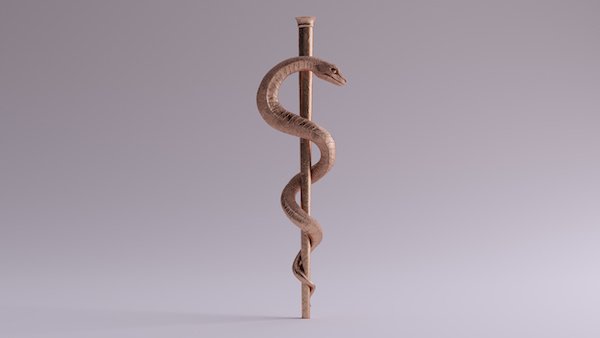Primary Care Medicine:
What Is the Difference between Internal Medicine and Family Practice?

Many people ask this question. Truly, the lines are somewhat blurred between internal medicine and family practice and there is considerable overlap between the two. They are both considered primary care specialties which means that both types of doctors serve as the main source of medical care for their patients. Which type you choose may depend on what your particular situation is and what type of medical care best suits you or your family.
Family Practice is all encompassing and all inclusive. It is a very broad specialty that includes basically all ailments in all types of people. Whatever your problem whatever your age, it falls under the care provided by a family practitioner. That includes everything from routine pregnancies, OB-GYN, delivering babies, neonatal care, pediatrics, adolescent care, care of adults, geriatric patients, surgery, hospital care, emergency and urgent care, cancer, heart disease, infections, diabetes, lung disease, strokes, dementia, psychiatry, wellness and preventive care and everything in between.
Internal Medicine is also a broad category of medicine, but is more limited in scope than family practice, dealing primarily with adult patients, but more focused and detailed in some ways. Internal medicine does not include pregnancy, OB-GYN, pediatrics, adolescence, or surgery. Internists are considered "doctors for adults" and specialize in diagnostics and comprehensive care of patients with chronic illnesses.
During the time after WWII in the 1960s to the 1990s there was more of a distinction between the two specialties. There were not many cardiologists, neurologists, gastroenterologists and other subspecialists around back then. Internists were trained more completely in those specialties and in a wide array of complex diseases. Many internists could perform many of the procedures performed by subspecialists, like upper and lower endoscopies, bone marrow aspirations, liver biopsies, bronchoscopies, etc. As the number of subspecialists grew, the scope of practice for internists and family doctors has changed as well. We rarely do any of the procedures that specialists do any longer. However, we are still trained in those procedures, so we understand them. We are also very well-trained in the diagnosis and treatment of acute, chronic, and complex medical cases. Family practice physicians as well as internists receive a minimum of seven years of intense training, day and night, beyond our four years of college, and are fully capable of managing complex cases and hospitalized patients. Family doctors and internists also are well-versed in geriatrics. Indeed, much of our training and experience have centered around the care of people over 65. We also have full training and experience in palliative care and hospice care.
So now, we basically have merged into the specialty known as primary care which encompasses both family practice and internal medicine physicians. Many students who select internal medicine or family practice as their career choice end up either specializing in one of the medical subspecialties, like cardiology or pulmonary, or they become hospitalists. Indeed, family practitioners these days can easily take care of the same patients that Internists see, and if they need to, they can refer the patient to a subspecialist just like the internists do now. Family practitioners as well as internists spend much of their time practicing preventive medicine, focusing on prevention of disease for all their patients.
The definition of internal medicine has been somewhat oversimplified recently by the term "Doctors for Adults", although that is basically what we are. The traditional concept of internal medicine, beginning in England with the London's Royal College of Physicians and continuing in this country with the American College of Physicians, is the practice of medicine with a strong basis in science and pathophysiology, maintenance of high academic standards, excellence in diagnosis and a detailed approach to treatment of patients with complex or critical illnesses. At the heart of internal medicine is its unending focus on the care of the patient as a complete individual rather than as a conglomeration of disease entities to be treated separately. The patient is always the center of our attention and all the details of science, physiology, sociology, pharmacology and other disciplines revolve around doing whatever it takes to make the patient better. This is really no different from what the family practitioner does. One major difference is that internists do not see children or adolescents, and do not do obstetrics or gynecology.
Why do you need a primary care doctor?
Almost all of the other medical (non-surgical) subspecialties, like cardiology, pulmonary, endocrinology, etc. have their origins in internal medicine. They are highly trained and knowledgeable in their fields and they had to complete internal medicine residencies before they could go on into their subspecialty training. Subspecialists, however, by definition, tend to focus primarily on their area of expertise when they see patients. If a patient is followed regularly by a number of specialists but has no primary care physician, the patient suffers because of a lack of focus on his/her complete overall care.

The primary care doctor (PCP) can provide you with a centralized type of guidance, a comprehensive analysis of your situation and complete access to all the subspecialty services, diagnostic testing and therapeutics available. Your PCP can help you make the right decisions about whether or not to go ahead with tests and/or procedures recommended by others. He or she can help you figure out which of your medications are most important for your overall health and can help guard against drug interactions among medicines that various specialists may have prescribed. The primary care physician is your main advocate - the primary person who is looking out for you in this sometimes complex medical world.
Preventive health maintenance is an extremely important function of primary care doctors also. A lot of lives, not to mention health care dollars, could be saved by a greater focus on prevention of diseases and/or finding them early when they can hopefully can be more easily treated rather than just waiting till they become more severe.
There is really very little practical distinction any more between family practice and internal medicine. The differences are subtle with regard to the care of adults. If you want someone to take care of your entire family, including children, family practice is the way to go. If you need a general primary care doctor for an adult, either specialty would be fine.
From "Primary Care" to "HomePage"







